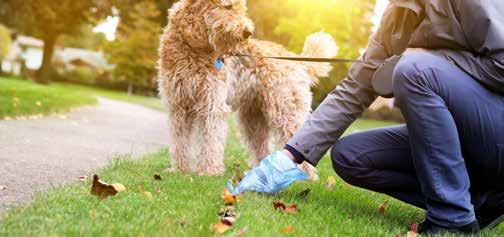Get up off your arse.
Looking After Each Other and Ourselves Words Dr Marjorie O'Neill, Member for Coogee Photo Oliver Sjöström We all understand the importance of looking after others, whether it’s someone immediately dependent upon us or a stranger that we’ve never met. It is very obvious that a shared community value here in the Eastern Suburbs is to not only care for those within our immediate circle, but to reach out to the broader community and offer support. We see this every day in the multitude of planned and random behaviours easily observed in our community including, but certainly not limited to, the escorting of children to school, the delivery of food to those in need, whole lines of cars which allow others to integrate with theirs regardless of ‘right of way’ and the growing network of online local groups offering free help and resources to the community. Importantly, it must be acknowledged that our frontline workers in health, community, 40 The Beast March 2021
education and other sectors have borne the brunt of looking after others at their own risk for the past year now. The question remains as to whether we are adequately looking after ourselves and hence others. We are well aware of the platitudes which invite us to invest in ourselves in order to be able to fulfil our responsibilities to others. We moderate our behaviours, eat our vegetables, make sure we have sufficient sleep and engage in further education. Many of us engage in regular exercise, and those who do often cite the benefits both physically and emotionally, yet we know that most of us do not do as much exercise as we should and this haunts us. There are many in our community who are seriously resource deprived in terms of exercise because their only exercise was a function of their work or social activity; exercise was always incidental to their
other activities and was never an end in itself (which was the norm for all but gladiators and professional sports players until recent decades). Now, we need to recognise the consequences of COVID-19 and appreciate the extent of this need. Consider the person who just a year ago commuted to the city and back, walked around an office and went out for lunch, but who has now been on Zoom in their home for a year. Imagine also the very many who a year ago were going to their local shops, clubs and other social places on a daily basis and who have now settled into a less public outbound social life and a more home-based existence. The past year has resulted in many of us, and those we care for, becoming less mobile and active. We also know that there has been an alarming increase in mental health problems and domestic violence. Associate Professor Simon Rosenbaum from the University of NSW states that, “Physical activity is an evidence-based strategy for reducing symptoms of mental illness and promoting positive mental health. The challenge is that those most likely to benefit from a little bit of activity are too often the least likely to have access to the required support, resources and opportunities to engage in age and culturally-appropriate physical activity.” Our challenge as a community is to increase not only our own physical exercise but, at least as importantly, to facilitate the physical activity of everyone in our community. We need to place this objective just behind food and accommodation as basic priorities. As a community, we need to focus on how we can offer accessible, affordable and attractive access to exercise. How about a regular community walk?











